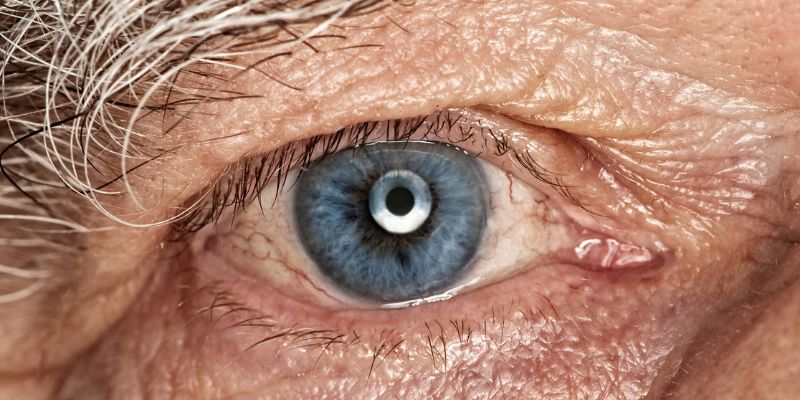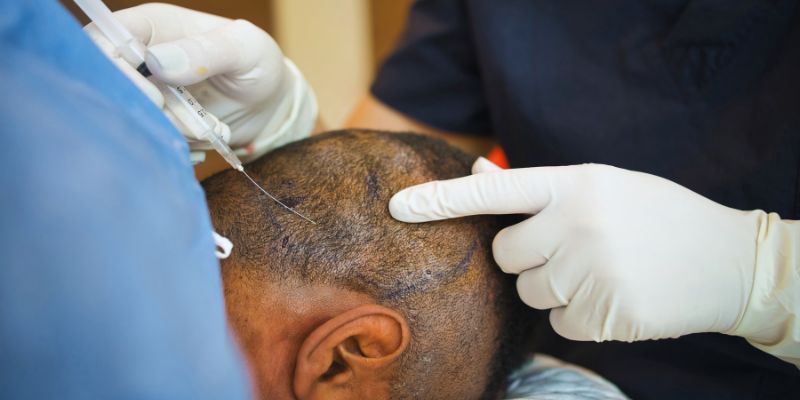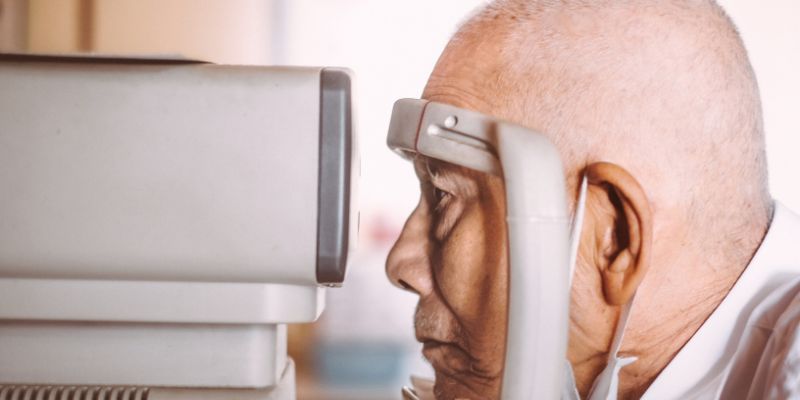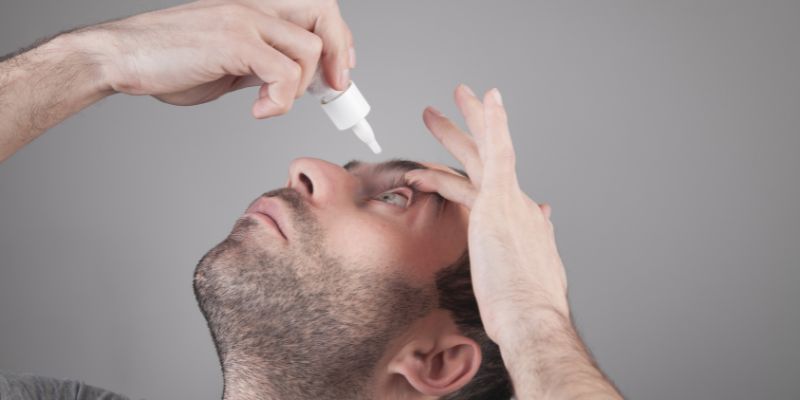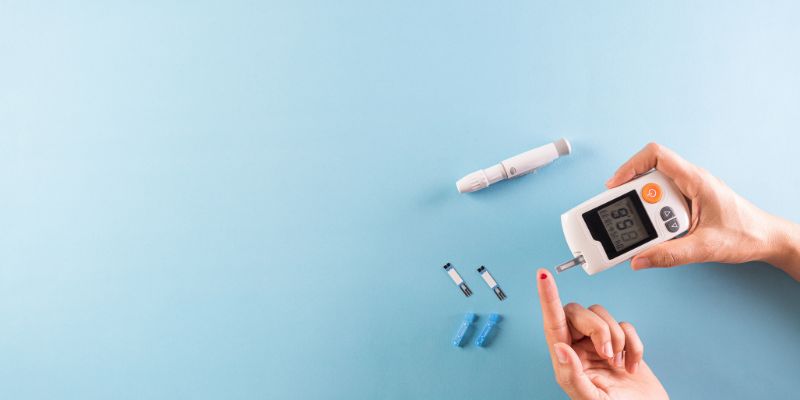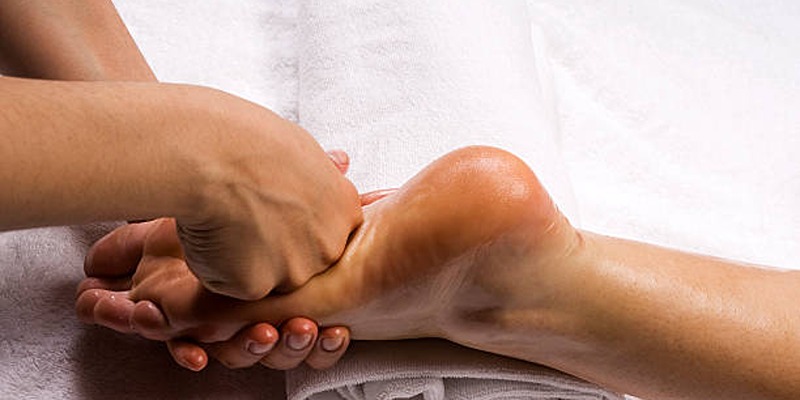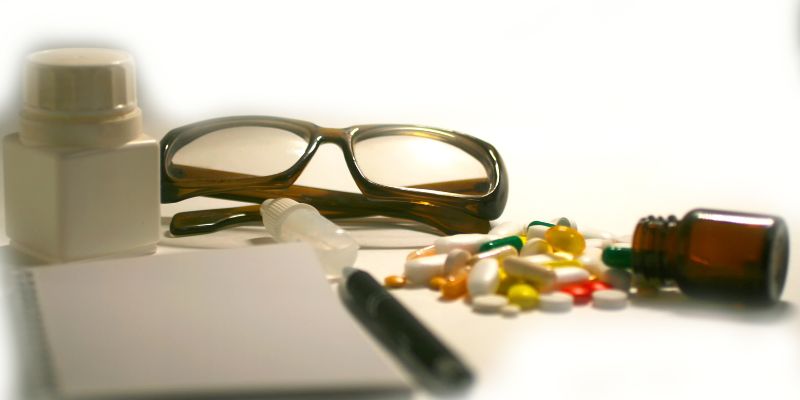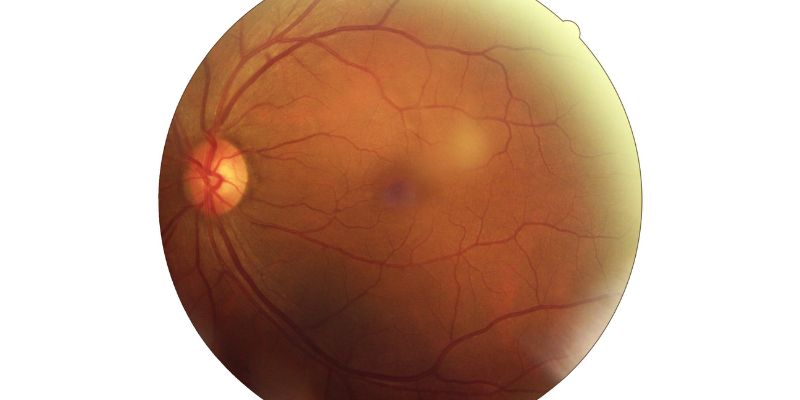Macular Degeneration: Causes, Symptoms, Diagnosis, and Treatment
Macular degeneration is a common eye condition and the most common cause of loss of eyesight in older people worldwide. The condition either reduces central vision or causes blurred vision due to the macula's damaged layers (inner) (a part of the retina).
Many people do not experience symptoms in the earlier stages. Treatment depends on the patient's age, medical history, and overall health. The condition greatly impacts life and makes daily tasks harder for the affected persons. To protect your vision and avoid this condition, learn more about its causes, symptoms, and available treatment options here!
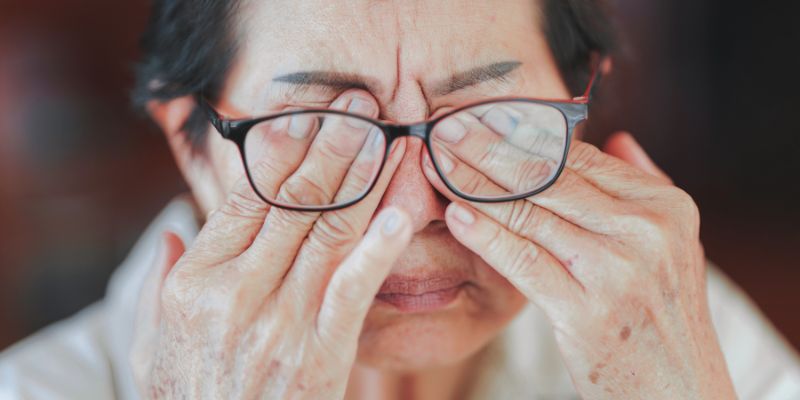
Understanding Macular Degeneration And Its Types
Macular degeneration is an eye condition that affects central vision. The word macular comes from the macula, part of the retina responsible for detailed and straight-ahead vision. It occurs when its cells start to collapse. The condition is of two types; let's know about them here:
Dry Macular Degeneration
It is the most common type that affects the central vision. It develops slowly and is considered less serious than wet macular degeneration. Dry macular degeneration is the growth of tiny deposits. These yellow deposits are known as drusen and are present below the retina. Drusen comprises lipids and proteins and can interfere with the macula's function. Dry-type progresses slowly, but it can impact the ability of a person to perform everyday tasks such as reading or driving. If you don't treat this disease properly, it can cause other serious problems like central blind spots.
Wet Macular Degeneration
Wet macular degeneration is less common. However, it is more severe when abnormal blood vessels grow below the macula. These abnormal blood vessels often leak blood and fluid, which damages the macula. This damage in the macular can cause rapid vision loss. Wet macular degeneration can develop from dry macular degeneration, but not everyone with the dry form will develop the wet type. If you have wet macular degeneration, it can convert into dry type. It is better to get proper treatment to avoid further vision loss.
Causes of Macular Degeneration
The cause of this eye condition has not yet been discovered. However, some factors increase the risk of developing it.
- Age: The risk of developing this eye condition increases as you age. People aged 50 or above are more likely to develop this condition.
- Genetics: Family history plays an important role. If you have a relative with macular degeneration, you are at high risk of developing this condition.
- Smoking: If you are a smoker, you are more likely to develop macular degeneration compared to non-smokers. Smoking also increases the risk of the disease.
- Being overweight: Being overweight increases the risk of developing more serious types of macular degeneration.
- High Blood Pressure: If you don't control your blood pressure, it will damage blood vessels in the eyes, increasing the chances of macular degeneration.
- Poor Diet: A diet with fewer vitamins and minerals can contribute to poor eye health and cause serious problems, such as macular degeneration.
Symptoms of Macular Degeneration:
The symptoms of macular degeneration depend on the type of disease. In the early stages, many people may not notice any symptoms. However, the signs become more noticeable after some time, making it hard to ignore them. Here are the symptoms of Macular Degeneration.
- Blurred Vision: Blurry vision is an easy symptom of macular degeneration. People with this disease notice blurriness in the center of the area of vision.
- Difficulty Seeing in Low Light: People with macular degeneration will have vision problems in low light levels. You might have macular degeneration if you can't see clearly in a dimly lit room.
- Dark or Empty Spots: People with macular degeneration will experience dark or empty spots in the central vision. Dark or empty spots are not the early symptoms; they will appear shortly.
Diagnosis and Treatment of Macular Degeneration
Diagnosing macular degeneration involves a series of specialized eye tests. These tests are best for examining vision and detecting changes in the retina. Early diagnosis is important for managing any eye problem. Here is the list of eye tests people need to diagnose macular degeneration.
- Visual Acuity Test
- Amsler Grid
- Optical Coherence Tomography (OCT)
- Fluorescein
- Dilated Eye Exam
Although macular degeneration has no cure, some treatments can slow its growth and save vision. Here are some treatment options for patients with macular degeneration.
- Anti-VEGF Injections: They are very effective for wet macular degeneration. They stop the abnormal growth of blood vessels and protect vision.
- Laser Therapy: In some cases, laser surgery can also be helpful. The laser destroys abnormal blood vessels and slows down vision loss.
- Vitamins and Supplements: The best way to treat macular degeneration is by consuming vitamins. Specific vitamins like vitamins C and E and zinc can slow the growth of this disease.
- Lifestyle Changes: You can change your lifestyle to improve your vision. Quitting smoking, eating a healthy diet, and protecting your eyes from UV light will help a lot.
How to Prevent Macular Degeneration:
People can take steps to protect their vision and reduce the risk of developing macular degeneration:
- Quit Smoking: If you are a smoker, you stop smoking. Smoking is a big risk factor for macular degeneration. Quitting smoking can help you lower the chances of getting the disease.
- Eat a Healthy Diet: A good diet can fix all the problems. You should eat a healthy diet to avoid health issues and eye problems like macular degeneration.
- Wear Sunglasses: Wear sunglasses to protect your eyes from harmful UV rays. Choose glasses that block 100% of UVA and UVB rays.
- Monitor Blood Pressure: Keeping your blood pressure under control. It will help reduce the risk of eye problems.
- Regular Eye Exams: Routine eye checkups can help detect macular degeneration early. You should regularly see a doctor to receive better and earlier eye treatment.
Conclusion:
Macular degeneration is an eye condition that affects central vision. There is no cure, but knowing the treatment and getting regular eye checkups is important. Simple lifestyle changes, like quitting smoking and eating healthy, can greatly help. If you want to lower your chances of getting macular degeneration, you should follow this guide. Staying informed and caring for your eyes can help you protect your vision.

